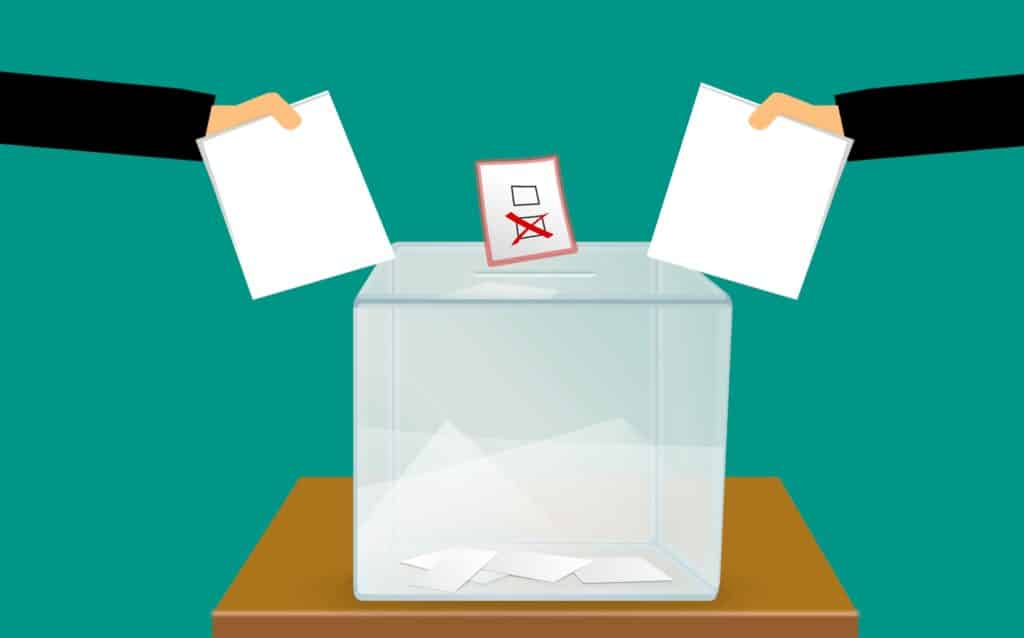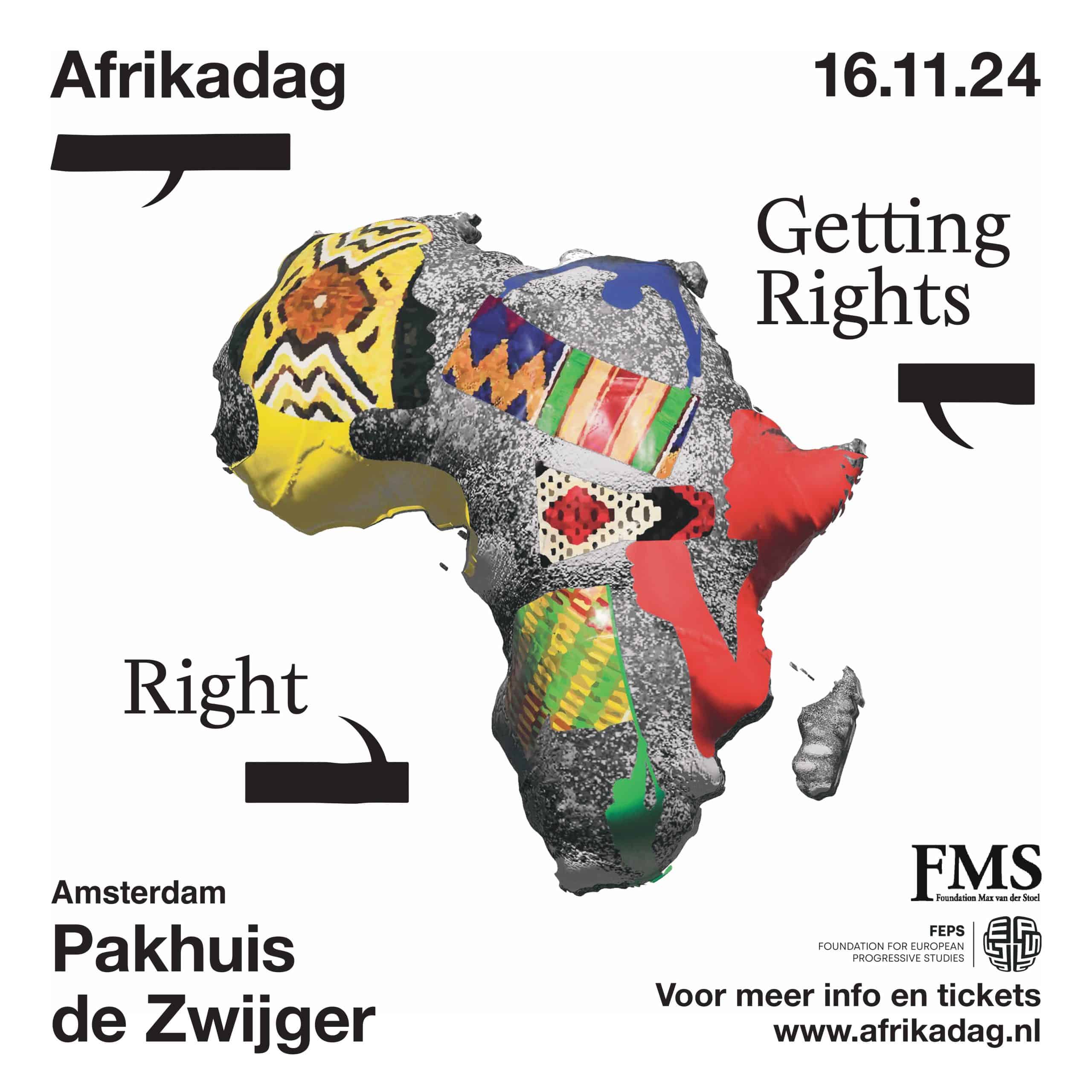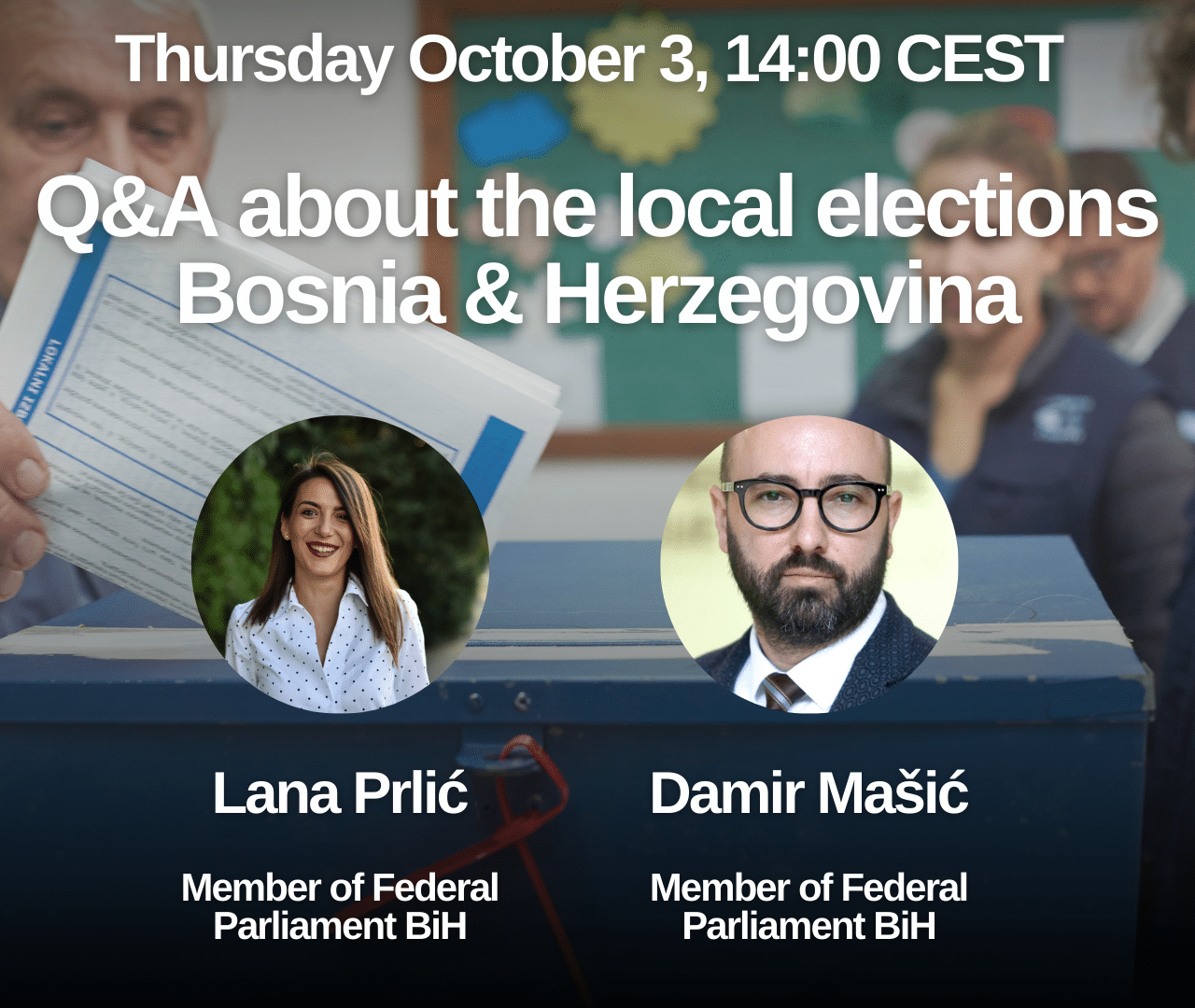Photo: Mohamed Hassan/ PxHere
2024 is also being called the election year by political analysts. In more than 70 countries, people are allowed to cast their votes which amounts to 3.7 billion people, almost half of the total world population. Just because elections are organised does not automatically mean they are democratic. In some elections, the winner is predetermined, such as the presidential elections in Russia. In other countries, however, the elections will be important indicators of democracy, such as in Georgia, where crucial parliamentary elections will take place in October. In any case, the FMS will closely monitor the next elections:
-
European elections (6 - 9 June)
In early June, European Union-wide elections take place for a new European Parliament. The parliament consists of more than 700 seats, which are distributed on the basis of degressive proportionality. This means that countries with a larger population elect a larger number of members, but the seats of a smaller country represent a smaller number of people.
Various polling agencies expect mainly far-right parties to do well. They poll the far-right group in the European Parliament called 'Identity and Democracy' (ID) third with about 13 per cent of the votes. In recent years, it became clear that these parties also attracted a lot of votes in national elections, this was the case for example in the Netherlands, Hungary, Italy and Slovakia. It seems likely that this trend will also continue at the European level.
All pro-European European parties are currently at a loss in the polls. If this continues in the results, it could have major consequences for the workability of the EU. The EU needs to evolve to be able to implement its policies efficiently. A larger bloc of eurosceptic parties in parliament could cause reforms to be blocked.
-
Presidential and parliamentary elections in northern Macedonia (24 April / 8 May)
In late April and early May, there will be presidential and parliamentary elections take place in northern Macedonia. The first round of presidential elections will take place on 24 April, followed by the second round and parliamentary elections on 8 May. The opposition has been calling for elections for two years, accusing the current government of corruption.
The elections will be important for the accession perspective of northern Macedonia to the European Union. Northern Macedonia is since 2005 EU candidate country and is currently on hold to start negotiations with the EU. This is partly because Bulgaria has so far avoided starting accession negotiations blocked. To resolve the conflict, negotiations took place on a compromise. This compromise involves amending the Macedonian constitution. First of all, North Macedonia will add in the preamble of the constitution that there are 'living within the borders of the state citizens who are part of another nation, e.g. Bulgarian'. In addition, the proposal talks about 'protecting the rights of all minorities and communities by countering hate speech and discrimination'. The problem, however, is that a constitutional amendment requires a two-thirds majority in parliament. So far, there has never been a two-thirds majority for a constitutional amendment, but the elections may provide new opportunities for this.
The attendance of some parties that are not uniformly pro-EU could jeopardise Macedonian EU accession. Parties like Levica and VMRO-DPMNE did not do very well last election, but are currently popular, partly due to the unpopularity of the current government. This is partly because, despite the name change, there has been no progress in EU accession. Consequently, support among Macedonians for EU accession has declined in recent years. Nevertheless, 60 per cent of residents still support EU accession. The percentage of opponents of EU accession has been stable around 12 per cent for several years.
-
Local elections in Turkey (March 31)
Retrieved from March 31 voters in Turkey will go to the polls for municipal elections. Throughout Turkey, new mayors and senior officials will be elected. The elections are another test for the opposition. They lost last year's presidential election by a wide margin, despite a severe earthquake that hit Turkey that year, causing much unrest in Turkish society. Opposition parties had also united, but they failed to defeat Erdogan and his AKP.
At the municipal level, however, the opposition has previously managed to defeat Erdogan's AKP. Major cities like Istanbul and Ankara are currently being controlled by a mayor from the CHP, a centre-left secular party. The upcoming elections are therefore going to be an important gauge of political relations in Turkey. Erdogan will pull out all the stops to ensure that these cities are once again ruled by allies.
In addition, the elections will also be a test for democracy in Turkey. Despite the continued presence of genuine opposition, there are serious concerns about the freedom of media. More than 90 per cent of the national media are now controlled by the government and media organisations that do not represent the AKP sound are closed down or taken over by Erdogan's allies. Opponents of the regime are indicted to make it difficult for opponents to mount opposition.
-
Parliamentary and presidential elections in Georgia (26 October/December)
On 26 October, Georgia holds elections to the Georgian parliament. These elections are interesting because last December Georgia EU candidate has become. In recent years, the Georgian Dream party (GD) has been in power. Under GD's rule, democracy has weakened. They are also viewed with suspicion given that Georgia has refused to impose sanctions on Russia after the invasion of Ukraine. This is very sensitive in Georgia, as Russia during a brief war annexed two counties of Georgia in 2008. GD, however, says it pro-EU are. Instead, they accuse other parties of unnecessarily provoking Russia.
A key development heading into the elections this autumn is the return of Bidzina Ivanishvili in Georgian politics (we wrote about this this item). He is the founder of GD and also the richest man in Georgia. From October 2012 to November 2013, he was already premier of Georgia. He then disappeared into the background, but it is widely believed that he was behind the scenes still plays an important role in Georgian politics. However, he says no prime minister want to become, presumably he will run in the presidential election, which will also take place in 2024.
Both elections will be important for possible Georgian EU accession. Georgia will have to start negotiating terms for accession. A good result for GD is likely to stand in the way of this, given the serious weakening of the democratic rule of law that has taken place under their leadership.
-
Parliamentary elections in India (April/May)
In April and May, India, the world's largest democracy, parliamentary elections. Probably more than 600 million voters over a five-week period to cast their votes. Incumbent prime minister Modi will contest these elections most probably go on to win with his Hindu-nationalist Bharatiya Janata Party (BJP). The economic growth, over seven per cent, has driven Modi's popularity to great heights. Big infrastructural projects have ensured rapidly advancing development. Elections in three northern Hindi-speaking states where support for the BJP has always been strong were held by the BJP on convincing manner won.
Yet there are also concerns about Modi's regime. Modi wants to turn India into a Hindu state, with minorities second-class citizens his. Modi owes his political career to his membership of the Rashtriya Swayamsevak Sangh (RSS), a Hindu extremist organisation founded in 1925 to example of Italian fascist groups. The aim of the RSS is to make India a Hindu state with a Hindu identity, in this there is no room for other views. The BJP supports this thinking. Various human rights organisations have reported violence against India's Muslim minority in particular in recent years. In addition, several human rights organisations working to combat genocide warned that signs of genocide may already be visible in Indian society.





